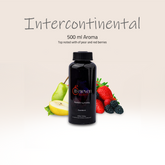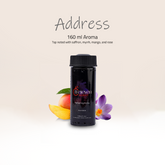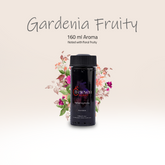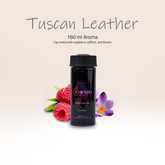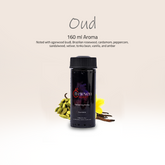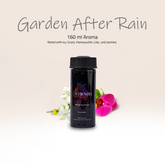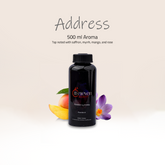The Science of Scent: How Aromatherapy Enhances Mood and Well-Being
Aromatherapy has become an integral part of modern wellness routines, but the science behind it stretches back thousands of years. Ancient civilizations like the Egyptians, Greeks, and Chinese understood the power of essential oils and aromatic compounds, using them in religious ceremonies, medical treatments, and everyday life. Today, with advancements in science, we can better understand how scent interacts with the brain and body, offering profound effects on mood, emotions, and overall well-being. Scent diffusers have made this ancient practice more accessible, allowing anyone to tap into the benefits of aromatherapy at home or in the workplace.
In this blog, we will explore the science behind aromatherapy, how different scents affect mood, the benefits of specific essential oils, and how scent diffusers can be incorporated into daily life to enhance well-being.
The Science of Scent and the Brain
The power of aromatherapy lies in the direct connection between the sense of smell and the brain. When we inhale a scent, odor molecules travel through the nasal passages and bind to olfactory receptors. These receptors then send signals to the olfactory bulb, which is directly connected to the brain's limbic system. The limbic system is the part of the brain responsible for emotions, memory, and behavior, which explains why certain smells can evoke strong emotions or memories.
Within the limbic system is the amygdala, the brain’s emotional center, and the hippocampus, which is responsible for memory formation. This close relationship between scent and the brain's emotional and memory centers means that fragrances can profoundly influence mood, mental clarity, and even stress levels. For instance, the scent of lavender is known to have a calming effect because it stimulates the release of neurotransmitters like serotonin and dopamine, which are linked to relaxation and well-being.
How Aromatherapy Affects Mood
Different scents interact with the brain in unique ways, which is why some fragrances are uplifting while others are soothing. Here are a few key mechanisms through which aromatherapy can affect mood:
- Activation of Neurotransmitters: Certain scents trigger the release of neurotransmitters, such as serotonin, dopamine, and endorphins, which are often referred to as the brain’s “feel-good” chemicals. For example, citrus scents like lemon and orange can help stimulate the production of serotonin, leading to an uplifted and energized mood.
- Stress Reduction: Aromas like lavender, bergamot, and chamomile are known for their ability to reduce stress. These essential oils can decrease cortisol levels, the hormone associated with stress, and induce a calming effect by interacting with the parasympathetic nervous system, which is responsible for the body’s rest-and-digest response.
- Improved Sleep: The use of essential oils like lavender, cedarwood, and valerian can promote better sleep quality by calming the mind and body, reducing anxiety, and creating a peaceful atmosphere conducive to rest.
- Enhanced Focus and Cognitive Function: Scents like rosemary, peppermint, and eucalyptus have been shown to enhance concentration and cognitive performance. These oils help increase oxygen flow to the brain, improving mental clarity and focus.
- Emotional Balance: Many essential oils, including rose, jasmine, and ylang-ylang, help balance emotions and promote feelings of happiness, love, and relaxation by regulating the release of hormones like oxytocin.
The Benefits of Specific Essential Oils
While each essential oil has its own unique properties, some are particularly well-known for their ability to enhance mood and well-being. Here’s a closer look at a few popular essential oils and their effects:
- Lavender:
- Benefits: Calming, reduces anxiety, promotes sleep.
- How it works: Lavender’s calming effects are due to its ability to interact with GABA receptors in the brain, which regulate anxiety and stress.
- Peppermint:
- Benefits: Energizing, enhances focus, relieves headaches.
- How it works: Peppermint stimulates the hippocampus, improving memory and alertness. It also activates cold-sensitive receptors, providing a refreshing and energizing effect.
- Bergamot:
- Benefits: Uplifting, stress-relieving, improves mood.
- How it works: Bergamot is known to reduce cortisol levels, promoting relaxation while also providing an uplifting effect by stimulating serotonin production.
- Rose:
- Benefits: Emotional balancing, promotes feelings of love and compassion.
- How it works: The scent of rose oil triggers the release of endorphins and dopamine, enhancing emotional well-being and creating a sense of happiness.
- Eucalyptus:
- Benefits: Clarifies the mind, improves breathing, reduces mental fatigue.
- How it works: Eucalyptus oil has a stimulating effect on the brain’s cognitive centers, increasing alertness and improving focus, while also opening up airways for better breathing.
How Scent Diffusers Enhance Aromatherapy
Scent diffusers are an ideal way to enjoy the benefits of essential oils in a consistent and controlled manner. By dispersing the aromatic molecules into the air, diffusers create a steady environment of scent, allowing for a longer-lasting and more immersive aromatherapy experience. Here are some of the ways scent diffusers enhance the effects of aromatherapy:
- Continuous Aroma Release: Unlike other forms of aromatherapy (like candles or sprays), scent diffusers provide a continuous release of essential oils, allowing the body to absorb the benefits over a longer period of time.
- Customizable Aromatherapy: Many diffusers allow users to adjust the intensity and duration of the scent, making it easier to tailor the experience to personal needs. For instance, someone may prefer a stronger scent for a quick energy boost in the morning but a lighter, more subtle aroma at night for relaxation.
- Improved Air Quality: Some essential oils, such as eucalyptus and tea tree, have antimicrobial properties, which can help purify the air and reduce the presence of harmful bacteria or allergens in indoor spaces.
- Enhanced Aesthetics: Many modern scent diffusers are designed to be visually appealing, making them a functional yet stylish addition to home décor. The calming mist produced by diffusers can also create a soothing ambiance, perfect for enhancing relaxation.
- Versatility in Use: Scent diffusers can be used in various settings, from homes and offices to yoga studios and spas. They are portable and easy to operate, allowing users to enjoy the benefits of aromatherapy wherever they go.
With the availability of scent diffusers, incorporating aromatherapy into daily life is easier than ever. Here are some practical tips on how to use scent diffusers to enhance mood and well-being throughout the day:
- Morning Energizer: Start your day by diffusing energizing oils like peppermint or lemon in your living space. This will stimulate your senses and help you feel more alert and motivated for the day ahead.
- Workday Focus: During work hours, use scents like rosemary or eucalyptus to improve concentration and productivity. These oils can help maintain focus, especially during long periods of work or study.
- Afternoon Calm: When stress starts to build during the day, take a break and diffuse calming oils like lavender or chamomile. A short aromatherapy session can help reduce stress and refresh your mind.
- Evening Relaxation: In the evening, wind down by using a scent diffuser in your bedroom with oils like cedarwood, sandalwood, or frankincense. These grounding scents can create a peaceful atmosphere conducive to relaxation and sleep.
- Spa Experience at Home: Transform your home into a mini spa by diffusing luxurious and soothing scents like jasmine, rose, or ylang-ylang while you relax in the bath or enjoy a meditation session.
Conclusion
The science of scent and aromatherapy reveals a profound connection between fragrance and our emotional, mental, and physical well-being. By harnessing the power of essential oils through scent diffusers, we can improve our mood, reduce stress, enhance focus, and create a more balanced life. Whether you’re looking for a boost of energy or a moment of calm, aromatherapy offers a simple and natural way to enhance well-being and transform your living space into a sanctuary of peace and relaxation.





